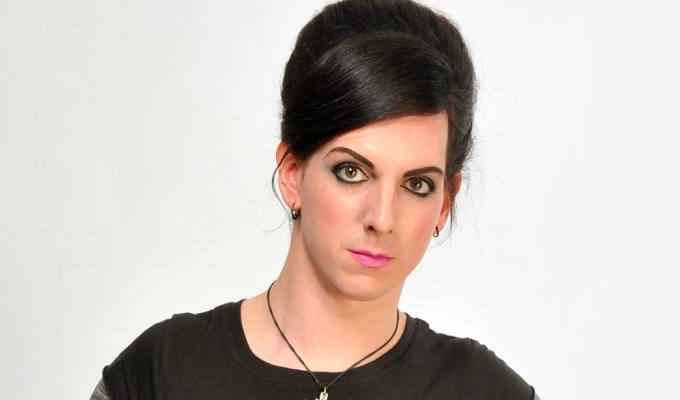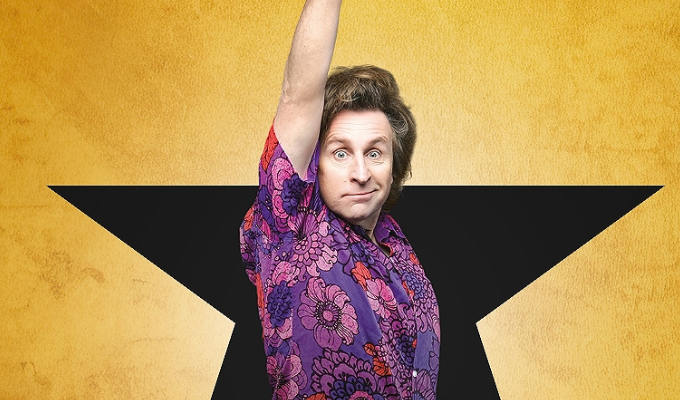
Jack Whitehall: Settle Down
Review of the comic's first stand-up tour in four years
Just before the interval of his first tour in four years, Jack Whitehall confesses to always seeking any distraction to avoid having a serious conversation.
That realisation raises the possibility that in the second half the comic will challenge himself to start probing deeper subjects, especially given that the set-up of Settle Down is how, at 34, he is growing up and discarding trivial things as he prepares for fatherhood.
However, save for a couple of fleeting and notable exceptions, deeper self-analysis is thin on the ground. There’s far more about his ‘fur baby’ dog, and how the toy poodle is emasculating (how very on-brand for this perennial beta-male), than the higher responsibility of being a parent.
Whitehall remains the archetypal banter merchant – proving the same great company that’s such an asset to panel shows and talk shows – as his riffs, self-effacingly about his privilege and his feeble masculinity. It’s sprinkled with a few good gags, but it feels like we’ve been here before. His comedy isn’t maturing as his life is.
After the obligatory references to his father, he harks back to his school days at Marldborough, as he calls it – as if that errant extra letter will keep the lawyers at bay – in the shadow of much more successful alumni such as Emma Watson and Robert Pattison. (And the Princess of Wales, who he fails to mention, maybe she’s an echelon of poshness too far). But he has a nice line in exaggerated indignation at the one time the Daily Mail did name him as an old boy, in a far-from-flattering story about the school.
There’s no faulting his performance skills – he’s excellent at both feigning spontaneity and putting in a few genuine ad-libs, and effective at acting out exaggerated scenarios. His burgeoning demand in Hollywood – where he spent at least one of the years since his last tour – is not a total surprise.
It means he can hold the audience. In the brief moment he talks about his partner Roxy Horner’s miscarriage, he has the audience’s full attention and sympathy. But it’s not long before that compulsion to head for the trivial kicks in again and we’re imagining God designing zebras, inspired by a safari he took where he found himself among Americans who were – guess what? – loud and stupid.
Fans already know most of his life’s landmarks from the media, such as how diabetic Roxy collapsed at the Brit Awards – related here with something of a glib punchline. But sometimes the elevated circles he moves in are exploited well. The relatable fears of how you measure up to a partner’s ex become a whole different prospect when that man is Leonardo DiCaprio.
Much is about he’s a victim of relentless ill-fortune – presumably considered more accessible than his rarefied upbringing and A-list lifestyle. A recurring theme is about he’s a ‘massive melt’, a coward unable to defend Roxy’s honour when a bouncer disrespects her. Meanwhile, a routine about the humiliation of dining alone in a restaurant gives reign to those act-outs, though there’s not too much substance behind it. And of course there’s an anecdote about drunken high jinks.
Plenty of topics are stand-up staples that could be – and have been – told by anyone: mocking right-wing fundamentalists for getting vexxed about ‘woke’ Disney movies; how Americans would whoop and cheer at news of him becoming a parent but Brits are cynically subdued; wondering what songs will be golden oldies when the current youngsters are in their dotage… He closes with a stirring speech about what he loves about Britain – Greggs, pub gardens and surly service staff – as stirring music plays. It seems cynical and manipulative.
In a rare philosophical moment, Whitehall reflects that he spent his youth chasing pleasure, while now he’s achieving happiness. If only he could find similar maturity in his comedy, which offers plenty of enjoyable snacks, but little that’s more satisfying.
Review date: 16 Jun 2023
Reviewed by: Steve Bennett
Reviewed at:
Brighton Centre








